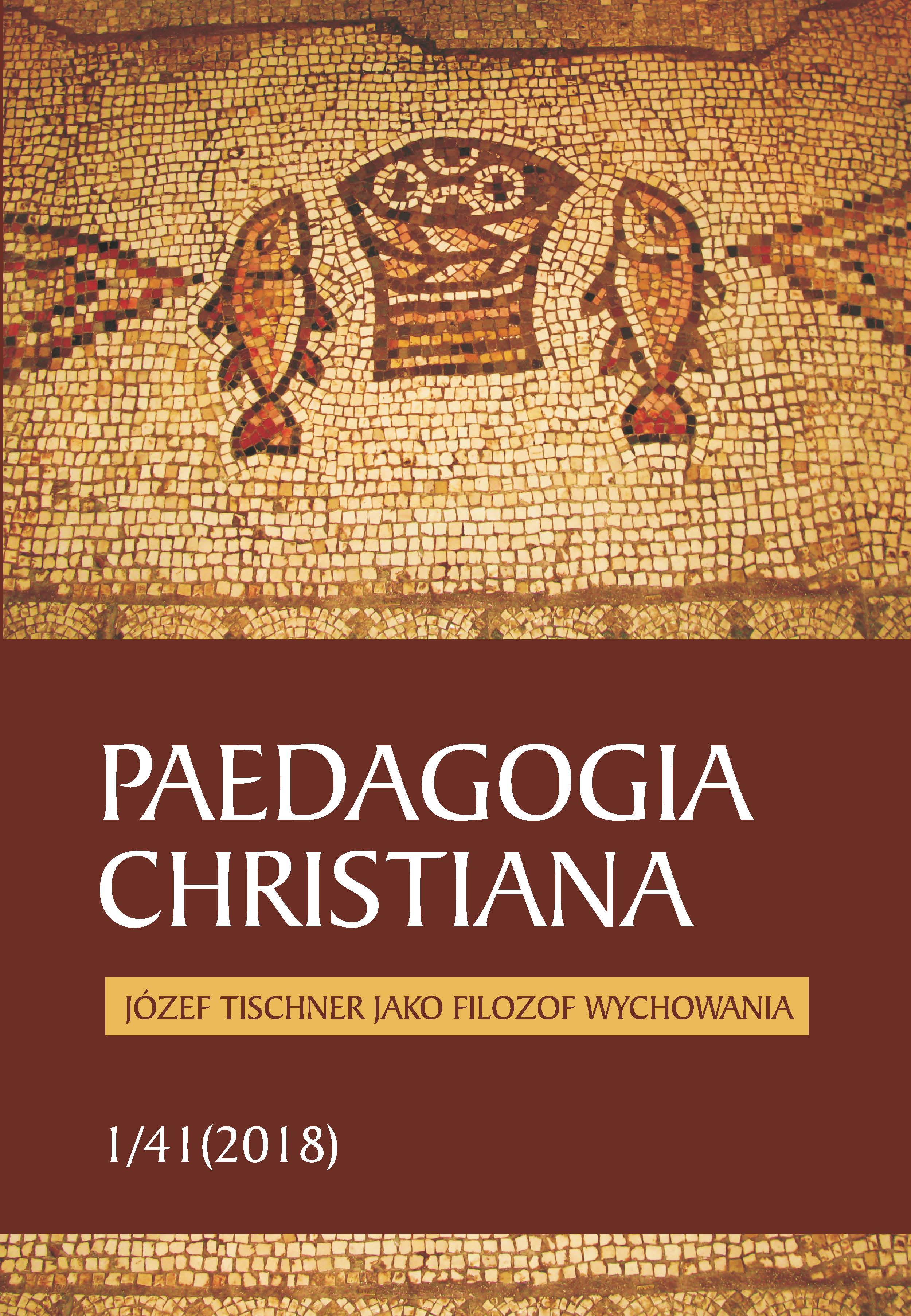Inner Space of Freedom and the Issue of Man according to Józef Tischner
DOI:
https://doi.org/10.12775/PCh.2018.004Keywords
freedom, issue of man, being-in-self, being-for-self, being-through-another, agathological space of consciousness, space of freedomAbstract
This article is an attempt to look at the views of Józef Tischner on the issue of freedom. According to the author, Tischner’s way of thinking about that problem was most influenced by the views of three great European philosophers, Thomas Aquinas, Jean-Paul Sartre, and George Wilhelm Hegel. The author briefly discusses those theses that most inspired Tischner and those with which he polemicized. Tischner’s views on the issue of freedom were not just a compilation of the views of those thinkers. The philosopher went his own way. He recognized that freedom is primarily connected with man and the various ways of his existence. Unlike Sartre, Tischner was convinced that free choice does not consist of a sudden unbounded act of choice. According to the Kraków philosopher, what is most important in freedom is connected with the spiritual side of man. A free choice springs from it. The inner space of freedom is of agathological character and is inhabited by values created by man. The characteristic of the inner space of freedom was only partly drawn by Tischner. Therefore, in the second part of the article, the author attempts to reconstruct Tischner’s views on the structure of the ‘agathological space of freedom’.
References
Dymarski, Zbyszek. „Debata księdza Józefa Tischnera ze szkołą lubelską”. Logos i Ethos 1 (1998): 235-245.
Kłoczowski, Jan Andrzej, Marek Drwięga, Karol Tarnowski, Jarosław Makowski. „Filozofia z wnętrza metafory”. Kontrapunkt (dodatek do Tygodnika Powszechnego) 10 (2000), (19.11.2000): 12-13.
Gilson, Étienne. Tomizm. Wprowadzenie do filozofii św. Tomasza z Akwinu, tłum. Jan Rybałt. Warszawa: Instytut Wydawniczy PAX, 1960.
Hegel, Georg Wilhelm Friedrich. Fenomenologia ducha, tłum. Adam Landman. Warszawa: Państwowe Wydawnictwo Naukowe, 1963.
Hegel, Georg Wilhelm Friedrich. Wykłady z filozofii dziejów, tłum. Janusz Grabowski, Adam Landman. Warszawa: 1958.
Hyppolite, Jean. Genèse et structure de la ‘Phénoménologie de l’Esprit’ de Hegel. Paris: Éditions Montaigne, 1946.
Kojève, Alexander. Łączny komentarz do sześciu pierwszych rozdziałów ‘Fenomenologii ducha’, tłum. Tadeusz Gadacz. Kraków: Wydział Filozofii Papieskiej Akademii Teologicznej, 1982.
Panasiuk, Ryszard. „Ksiądz Tischner czyta Hegla”. W: Pytając o człowieka – myśl filozoficzna Józefa Tischnera, red. Władysław Zuziak, 33-42. Kraków: Znak, Wydział Filozoficzny Papieskiej Akademii Teologicznej, 2002.
Sartre, Jean-Paul. Egzystencjalizm jest humanizmem, tłum. Małgorzata Kowalska, Janusz Krajewski. Warszawa: Altaya DeAgostini, 2001.
Sartre, Jean-Paul. Byt i nicość, tłum. Jan Kiełbasa i in. Kraków: Zielona Sowa, 2007.
Szary, Stefan. Człowiek – podmiot dramatu. Kęty: Antyk, 2005.
Tischner, Józef. „Czym jest ‘Ja’ transcendentalne?”. W: Szkice filozoficzne Romanowi Ingardenowi w darze, red. Zofia Żarnecka, 349-364. Kraków–Warszawa: Państwowe Wydawnictwo Naukowe, 1964.
Tischner, Józef. „Etyka wartości i nadziei”. W: Józef Tischner, Jan A. Kłoczowski, Wobec wartości, 55-149. Poznań: W drodze, 2001.
Tischner, Józef. „Schyłek chrześcijaństwa tomistycznego”. Znak 1 (1970): 1-26.
Tischner, Józef. „Sprawa osoby – wstępne przybliżenie”. Logos i Ethos 2 (1992): 5-19.
Tischner, Józef. Etyka a historia. Wykłady, red. Dobrosław Kot. Kraków: Znak, 2008.
Tischner, Józef. Filozofia dramatu. Paryż: Éditions du Dialogue, 1990.
Tischner, Józef. Myślenie według wartości. Kraków: Znak, 1982.
Tischner, Józef. Spowiedź rewolucjonisty. Kraków: Znak, 1993.
Tischner, Józef. Spór o istnienie człowieka. Kraków: Znak, 1998.
Tischner, Józef. Świat ludzkiej nadziei. Kraków: Znak, 1975.
Tischner, Józef. Świat ludzkiej nadziei. Kraków: Znak, 1994.
Wesołowska, Agnieszka. Fenomenologia jako możliwość filozofii dramatu Józefa Tischnera. Katowice: Wydawnictwo Uniwersytetu Śląskiego, 2012.
Workowski, Adam. Ontologiczne podstawy posiadania. Wrocław: Wydawnictwo Uniwersytetu Wrocławskiego, 2009.
Downloads
Published
How to Cite
Issue
Section
Stats
Number of views and downloads: 2027
Number of citations: 0



